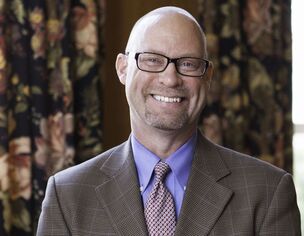|
CAS President Gavin Henning offers his thoughts on the need for co-curricular programs and services to "tell their stories" and how CAS can help!  When financial resources diminish on college campuses, focus often goes to “academic” activities such as classroom teaching and research. This shift diverts attention from educational and support activities that are critical for student success, as they are often considered non-essential. To demonstrate the value of co-curricular educational and support programs and services, a story of their impact must be told. The CAS Standards and Frameworks can help tell that story. The development and review process for the 45 functional area standards and the two new cross-functional frameworks is a rigorous process involving multiple experts. Once drafted, each standard and framework is then reviewed and approved by the entire council, which includes representatives from each of the 41 CAS member organizations. As a result of this approval process, these resources have the stamp of approval from the field of student affairs and services representing 115,000 professionals. Functional area standards include 12 sections: mission; program; organization and leadership; human resources; ethics; law, policy, and governance; diversity, equity, and access; internal and external relations; financial resources; technology; facilities and equipment; and assessment. These sections provide a comprehensive and meticulous overview of practice. Cross-functional frameworks, which address issues that span multiple offices such as first-year experiences and high risk behaviors, include five sections: the charge and operating principles; cross-functional team; approach and process; initiatives, strategies, and tactics; and assessment. These components describe how particular, comprehensive issues should be addressed. The information contained in the standards and frameworks provide detailed outlines regarding how an office should operate or how an issue should be tackled. The standards and frameworks can be used to defend current resources and advocate for additional funding. They can also explain to those unfamiliar with the program or service, the work that the area does to support students. The standards and frameworks can also assess effectiveness and impact. Approved by the field and with detailed standards of practice, the CAS Standards and Frameworks can validate the work done in student support and services offices and help tell the story of the impact of higher education programs and services. --- Dr. Gavin Henning is Professor and Program Director for the Master of Higher Education Administration and Doctorate of Education at New England College. He also is the President of CAS and a recent past present of ACPA: College Student Educators International. Gavin actively contributes to higher education assessment literature, and he recently co-authored Student Affairs Assessment: Theory to Practice and co-edited Coordinating Student Affairs Divisional Assessment: A Practical Guide. He holds a Doctor of Philosophy degree in Education Leadership and Policy Studies and a Master of Arts degree in Sociology both from the University of New Hampshire as well as a Master of Arts degree in College and University Administration and a Bachelor of Science degree in Psychology and Sociology from Michigan State University.
0 Comments
Leave a Reply. |
AuthorWrite something about yourself. No need to be fancy, just an overview. Archives
July 2024
Categories
All
|
|
Council for the Advancement of Standards in Higher Education. All Rights Reserved.
2455 East Sunrise Boulevard, Suite 816| Fort Lauderdale, FL 33304 800.889.7270 (p) | [email protected] |
